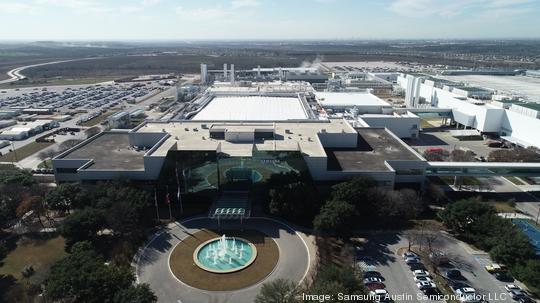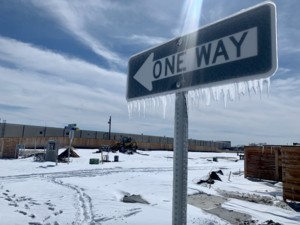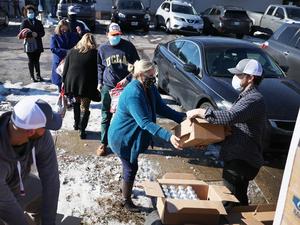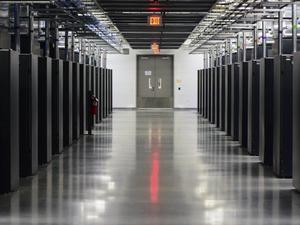
As Austin semiconductor manufacturing facilities remained closed on the afternoon of Feb. 19, racking up millions of dollars in losses, Ed Latson wondered whether the failure of the state’s energy grid this past week might cause companies to reevaluate in the future any plans to expand operations in the Texas capital.
“We can’t get companies like Tesla and Samsung to invest billions of dollars here if there is not a resilient grid,” said Latson, Austin Regional Manufacturers Association executive director. With no investment in a more resilient grid, he questioned whether Samsung would continue to consider the Texas capital as a location for a potential $17 billion expansion.
Multiple storms and single-digit temperatures this past week caused millions in Texas to lose electricity as power plants ill-equipped to withstand the cold shut down at the same time demand spiked. The Texas Tribune reported Feb. 18 that Electric Reliability Council of Texas officials said the state “power grid was ‘seconds and minutes’ away from a catastrophic failure that" might have plunged Texans into the dark for months.
Hundreds of thousands in Central Texas went days without electricity. Power has been restored in most parts of the region — about 4% of Austin Energy customers lacked power as of 3 p.m. Feb. 19 — but now thousands are without water.
Massively complex semiconductor fabrication facilities have been shut down in Austin for days, at a time when computer chips are in short supply globally. The fabs and other large power users went dark early this week at the request of Austin Energy, the Austin American-Statesman reported Feb. 16.
It's unclear if or how state leaders might act to prevent future disasters. Gov. Greg Abbott on Feb. 18 urged state legislators to mandate the winterization of generators and power plants, The Texas Tribune reported, which would entail upgrading infrastructure to better handle the cold.
Laura Huffman, president and CEO of the Greater Austin Chamber of Commerce, said in a statement that “the reliability and resiliency of our energy supply is a vital concern for businesses, especially those in high-tech manufacturing. We have heard from businesses of all sizes and in every sector — reliability is critical.”
“This has been a disaster for the semiconductor industry locally to lose power, first, and not be able to operate is huge,” Latson said. “Now a major water shortage is preventing” those companies from coming back online.
Samsung Austin Semiconductor LLC spokeswoman Michele Glaze said the company is “talking with Austin Energy and Austin Water,” and is “making efforts to resume as quickly as possible. Our primary focus is to ensure safety onsite for our workforce, as well as the community.”
The company employs about 3,000 in the Austin area and boasts a North Austin facility that spans 2.45 million square feet, 450,000 of which are dedicated to manufacturing.
Glaze declined comment on how the Texas grid failure might affect Samsung’s possible Austin expansion plans. Austin Energy and Austin Water officials did not immediately reply to requests for comment.
Jacey Zuniga, a spokeswoman for NXP Semiconductors N.V. (Nasdaq: NXPI), said the company did not have a timetable update on when it would resume activity.
“Once necessary utility services are restored, our operations team will be able to evaluate the impact of the shut down, and when full production will resume,” Zuniga said. She declined further comment.
The company's South Austin facility spans nearly 2.7 million square feet. NXP employs roughly 4,000 locally.
The Austin semiconductor sector shutdown occurs against the backdrop of a global chip shortage. President Joe Biden’s administration is reaching “out to U.S. embassies and foreign governments to try to alleviate the shortage," The New York Times reported Feb. 19.
The impacts of the local chip plant closures “are not fully clear yet,” Latson said. “We’re definitely going to be a voice speaking up for a more resilient power grid.”






